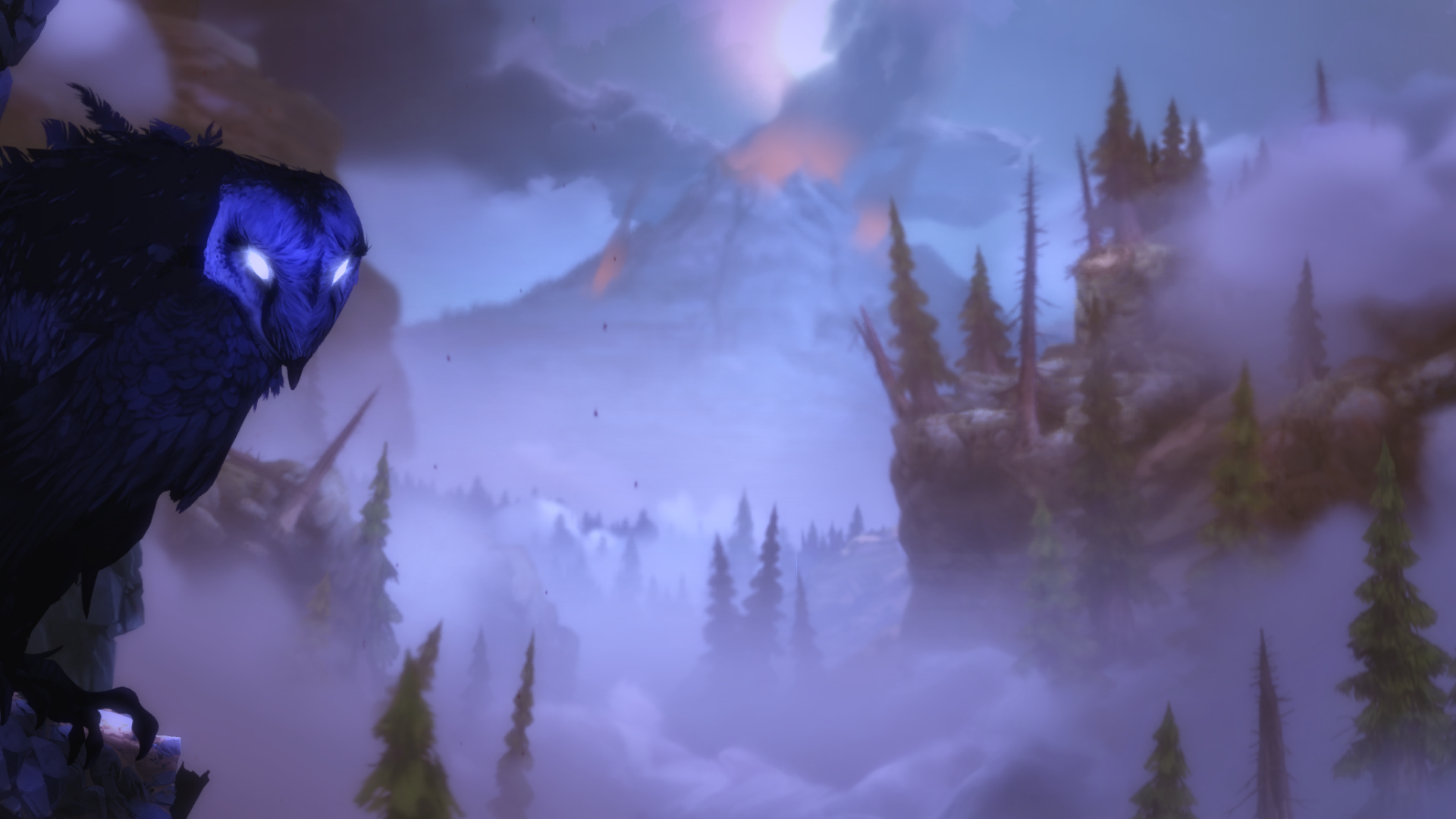Our Verdict
Challenging and gorgeous, Ori is a classic platforming genre modernized and done strikingly well. Use a controller and save often.
PC Gamer's got your back

Click the expand icon to watch Ori and the Blind Forest in motion.
Ori and the Blind Forest is a pool of painted light in constant motion, where layers upon layers of animation recede deep into each frame. 3D effects, such as the surface of a lake changing perspective as you dive deeper, subtly add volume to sparkling 2D spaces. In its dungeons, complementary colors light ice caves and lava flows with the striking clash of pulp fantasy illustrations. It’s one of the most beautiful games I’ve ever played.
It’s also very fun, and pretty difficult. The curiously calming (and fantastic) music seems more suited for a city builder, but smartly so: piano, winds, and strings relieve the stress of playing Ori and lull me into a cool-headed space, where I can routinely die by spike pit and keep going. I never wanted to stop.
Ori is classified as a metroidvania, a genre of 2D platforming action games where new abilities are typically picked up along the way and backtracking—often to find formerly unreachable secrets—is a necessary part of playing. Ori can easily be compared to Metroid in that respect: It’s an intricate, winding network of passages, each with hidden areas, treacherous platforming puzzles, and projectile-spewing enemies. It comes with the genre’s captivating exploration, but also the minor flaw that such openness can lead to pointless excursions into places you’re not supposed to be yet. By some accidental luck, I actually made it to the entrance of the final dungeon long before I was supposed to, and then had to turn back and try not to die as I escaped without the abilities I was supposed to have reached the area with.
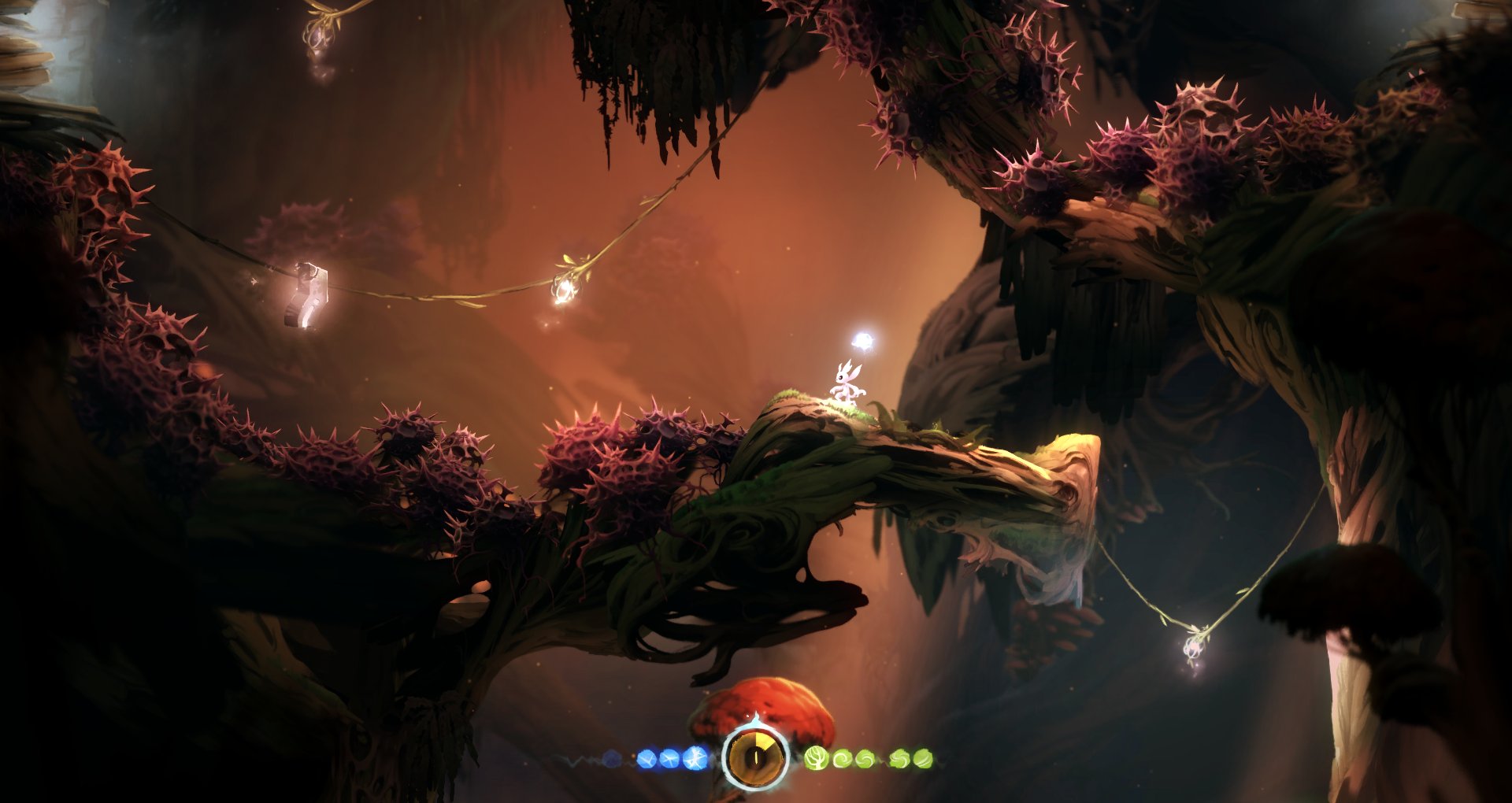
A violent pinball
What is it? A metroidvania with challenging platforming puzzles and some combat.
Reviewed on: Windows 7, Core i5-3570, 8GB RAM, GeForce GTX Titan
Play it on: Core i5, 4GB RAM, GeForce GTX 550 Ti / Radeon HD 6770
Publisher: Microsoft Studios
Developer: Moon Studios
Multiplayer: None
Release date: Out now
Price: $20 / £15
Copy protection: Steam
Link: Official site
Despite the comparisons to Metroid, though, Ori is hardly ‘retro.' Just as Ori's art doesn't emulate Metroid's pixels, its design is not a total copy, focusing far more on interesting movement than shooting. The basic attack is a fairly ineffectual barrage of homing projectiles, and can only be made faster and stronger. I was a little disappointed when I realized I wasn’t going to discover more interesting projectiles, but with no aiming to speak of, Ori can focus on fun stuff like jumping, wall jumping, double jumping, super jumping, smashing into the ground, swimming, climbing, floating, and dashing—phew.
The dash move is by far the best. Trigger it near an enemy or projectile, and you get a moment to orient an arrow. Ori will be flung in the direction of the arrow, and whatever you're dashing through will be launched in the opposite direction. It's used to toss enemies aside, fling them into spikes, shoot their projectiles back at them, and can be deftly chained to traverse the open air. It slows things down for a brief moment, then speeds it all up with a satisfying burst of sound and art—it's the best part of the energetic rhythm that makes playing Ori feel so great.
Late in the game, I was chaining dashes with wall-jumps, double jumps (and triple jumps!), and more to leap past insta-kill lasers and explosive projectiles and lava pools, solving every challenge like a violently bouncing pinball. It's a lot of fun, familiar platforming, even though I died a ton.
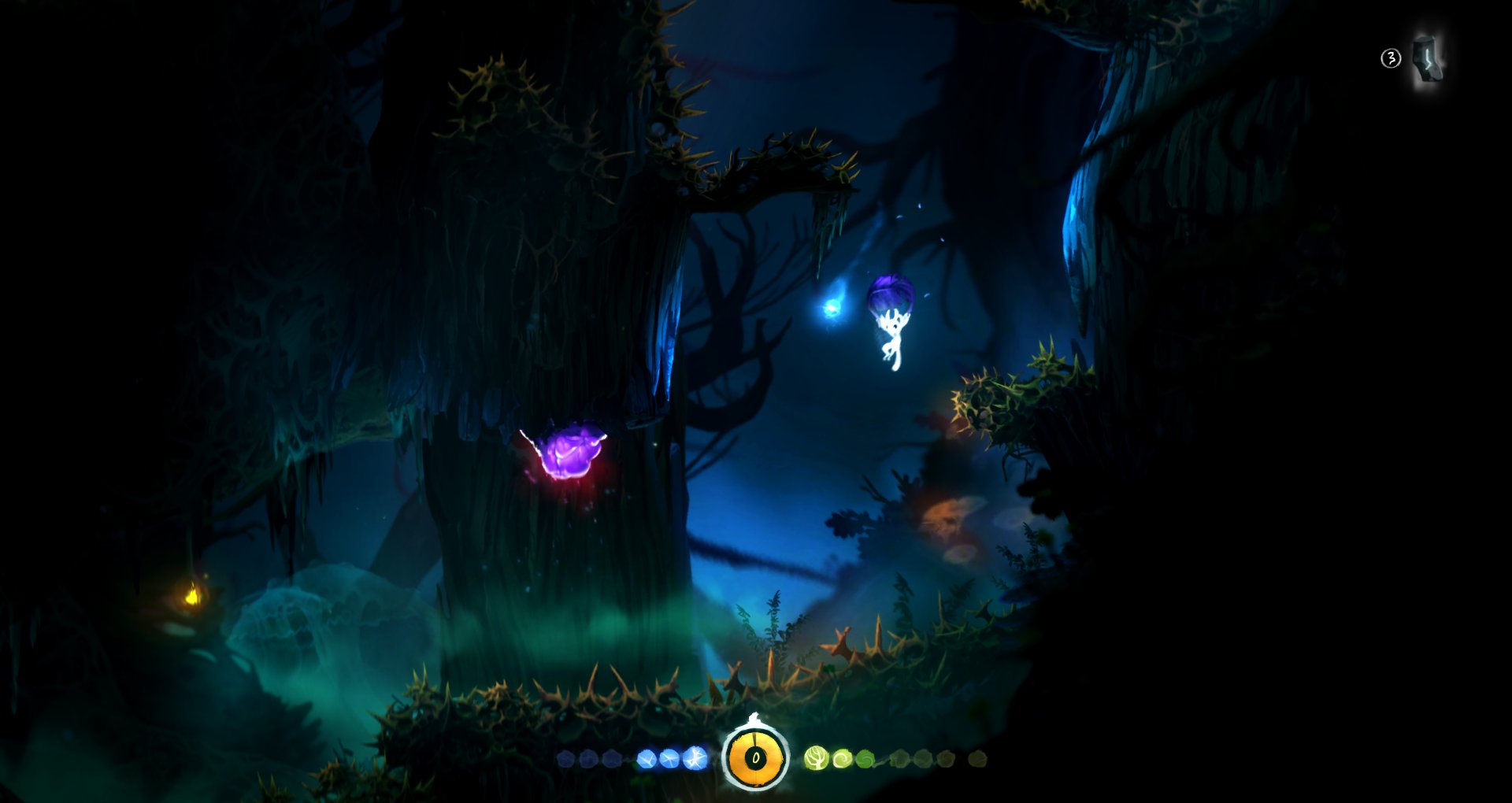
Save the forest
Others I’ve spoken to are not fond of Ori’s save system, but I like it. Using the energy resource, which is fairly plentiful, Ori can save in any safe place. Early on, when I wasn’t in the habit of paying attention to my energy reserve and saving after every accomplishment, it was mildly frustrating: I’d solve a difficult bit of maneuvering and then die later from some stupid mistake without having stopped to record my progress. Once I was in the habit, though, the system is a nice modern bit of design that acts as counter-balance to Ori’s difficulty. If something is giving you trouble, you can save just before it and try and try again until you succeed.
There are a few places, however, where you can’t save at all. Ori’s three dungeons (for lack of a better word) each have timed chase segments which must be completed in one go. They’re a series of challenges which come fast and must be memorized—every time I got a little further, I died trying to figure out what I needed to do next, and then I memorized that and got further, and died again. They are frustrating, and I love them. Mastery is intrinsically enjoyable—it’s the entire premise of Super Meat Boy, which I also love—and I don’t mind barking at my screen when it feels cruel, so long as it’s not too cruel. It wasn’t. I never spent more than 20 minutes or so on one segment.
I did find these end-of-dungeon difficulty spikes surprising given the forgiving save system and marketing that focuses on a “deeply emotional” story (which is told in beautifully-animated segments, but never quite gets better than the sweet and tragic opening). This is not the sort of game that lets less-skilled players skip the tough bits to get on with the pretty art, which isn’t a knock on Ori, but something you ought to be aware of. It’s better seen than described, so I’ve embedded a video of the first of these timed segments above. It's classic a 'die until you memorize this' design, but not unfair.
There are a few moments when Ori feels unfair. I love the art, for instance, but it pops and glows so brightly that I sometimes couldn't tell what was what amid the fireworks, careening into projectiles I mistook for experience orbs. Ori is a small figure, and it’s frustratingly easy to lose track of her spindly white glow. It's a small annoyance. I also felt that a few challenges lacked imagination—putting items which need collecting very near some spikes, for example. That kind of thing seems mundane after I've figured out an anti-gravity orb, but for the most part, Ori's precision tests are fun to unravel.
One important note: I played through Ori on an Xbox 360 controller (one I recommend, along with the Xbox One and DualShock 4 controllers), and I don’t recommend using a keyboard. I attempted one of the more difficult sequences with mouse and keyboard (WASD to move, space to jump, mouse buttons for special moves and attacks), and I could do it, but it took a lot more effort. Sometimes my mouse-controlled dashes fizzled out, plummeting me to my death, and I couldn’t figure out why. That never happened on a controller, and Ori is definitely designed for a controller. The keys are not rebindable, which is a demerit.
But go and grab a controller, because it’s worth it. I clocked about eight hours with Ori, and that’s without hundred-percenting it (if that’s something you’re into, copy your save before you beat it, because you can’t go back after entering the final dungeon). I loved nearly all of it. It’s beautiful, it’s hard, and while it takes some of its greatness from console classics, it shines with its own identity.
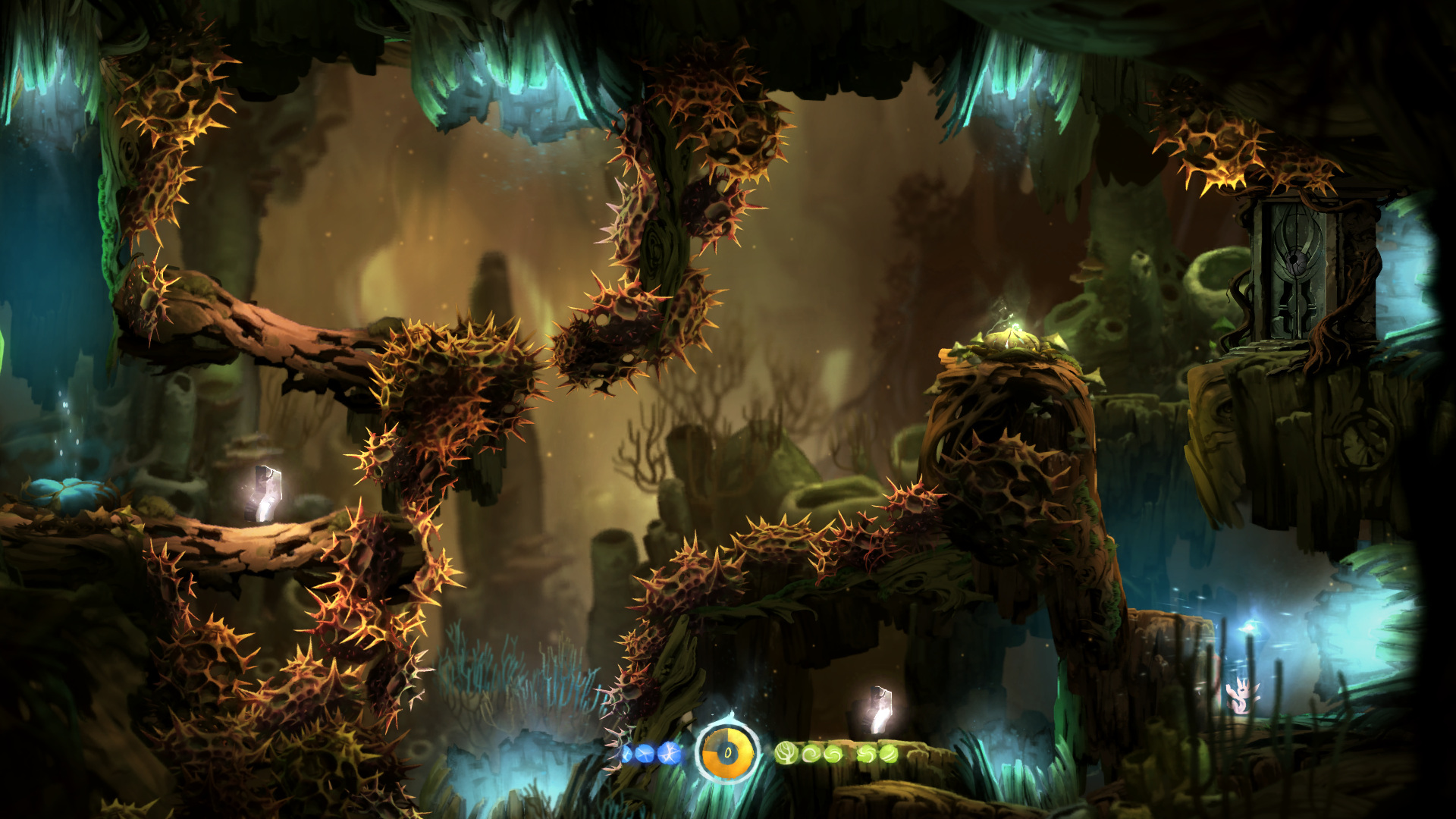
Don't be deceived by the sweet, simple opening—Ori isn't a cakewalk.
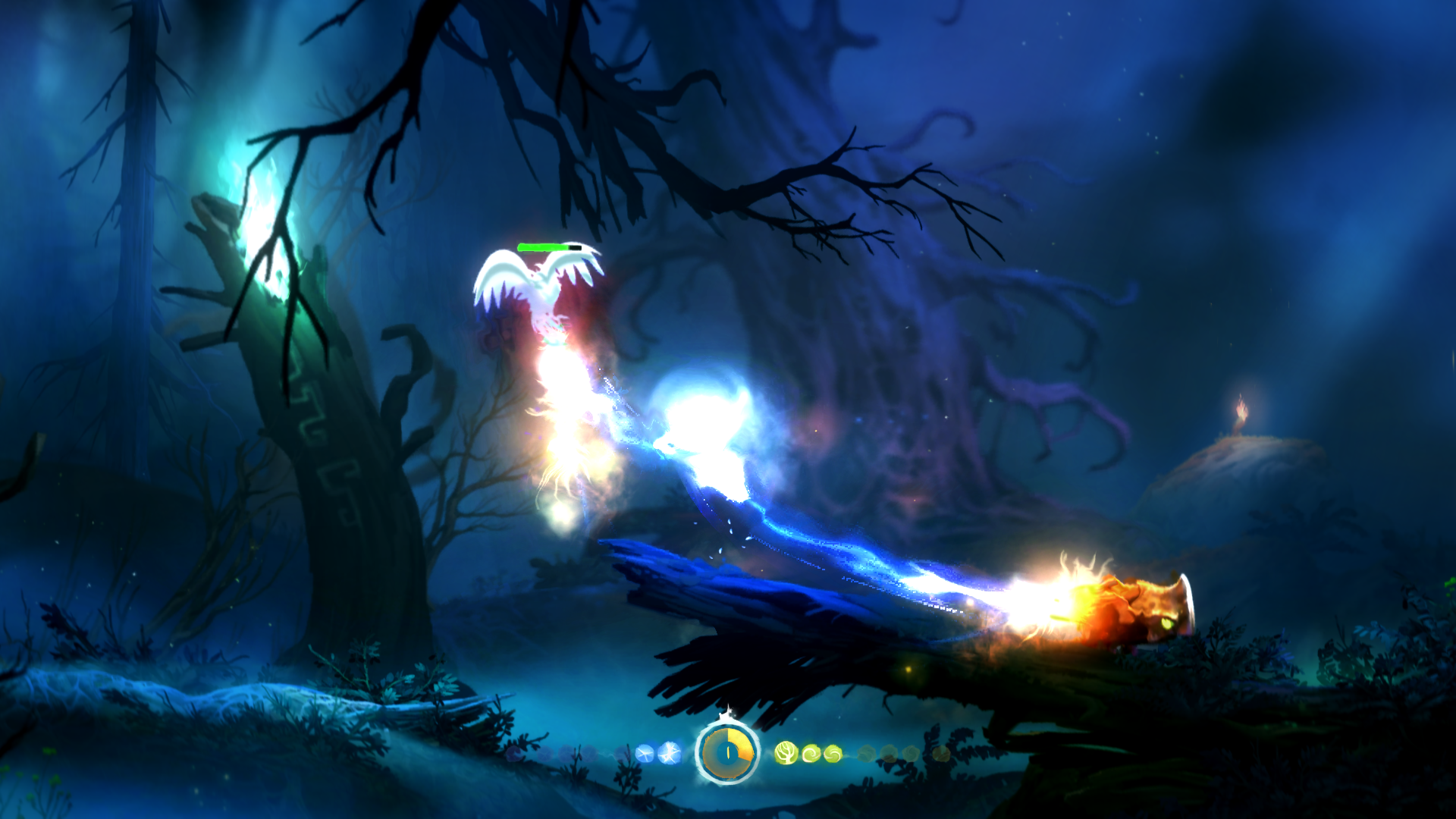
The light effects can be a bit overwhelming.
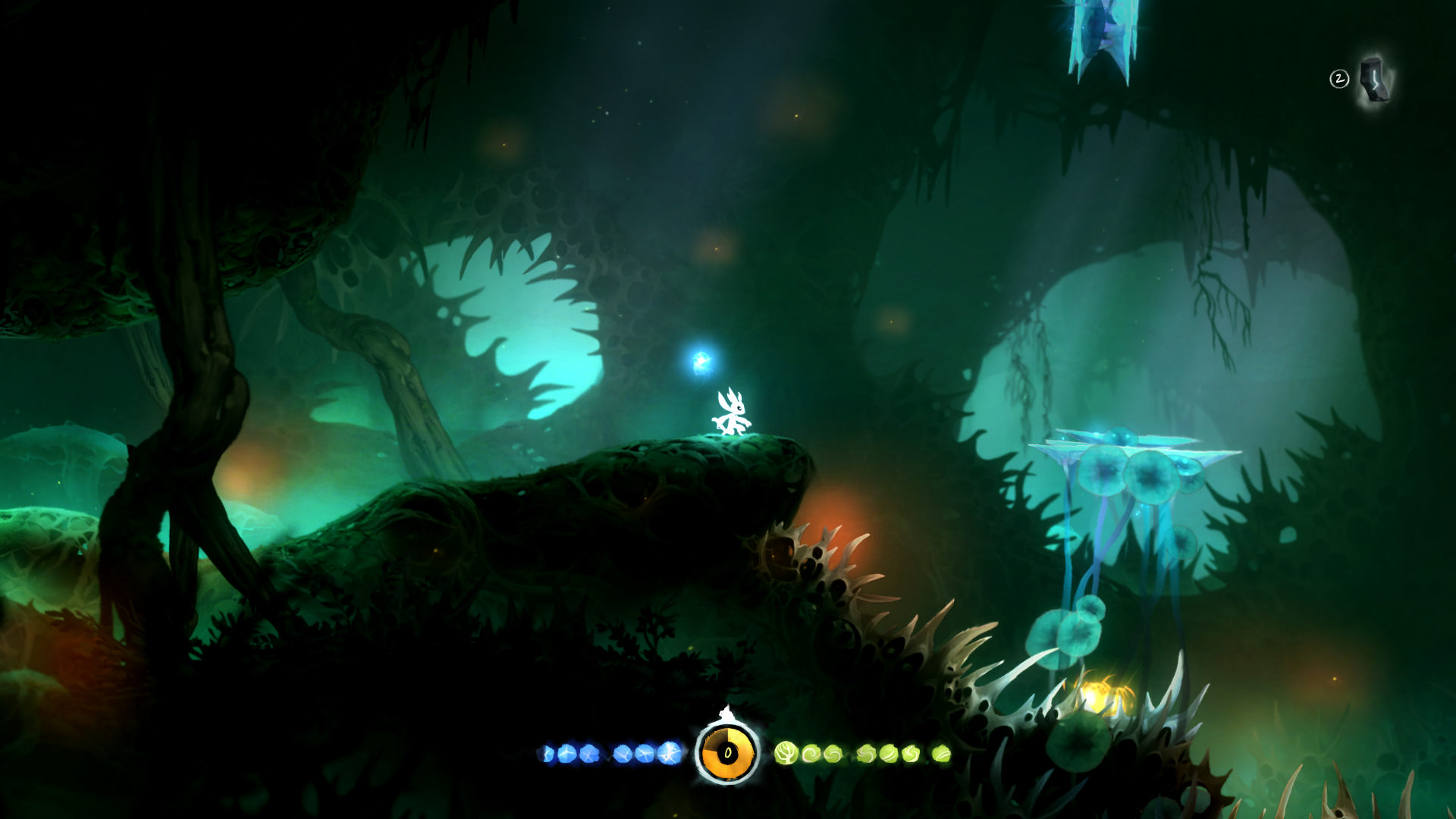
The platform on the right (plantform?) folds and unfold every time you jump—one of Ori's many little puzzles.
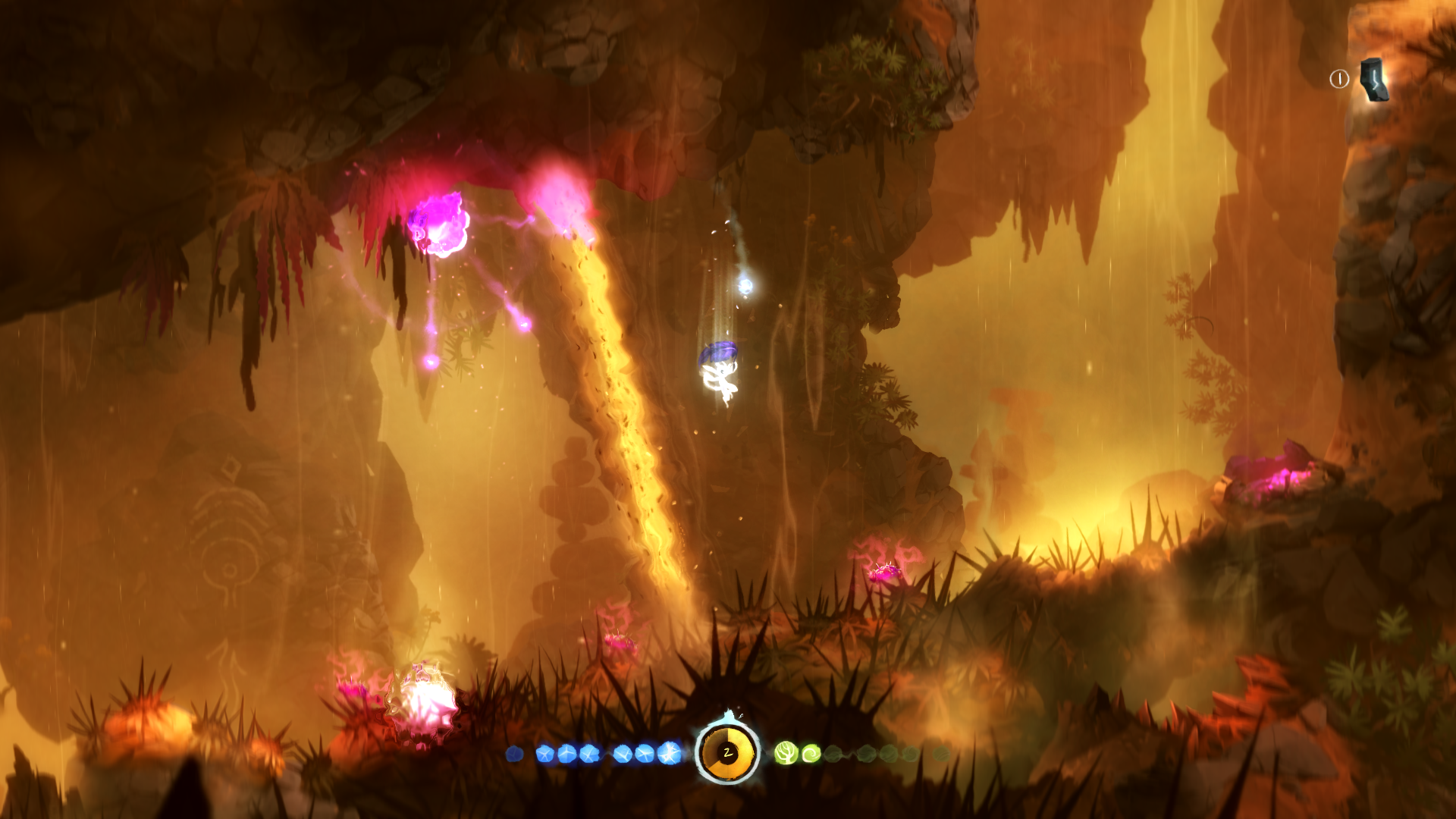
Death beams and projectiles are in no short supply.
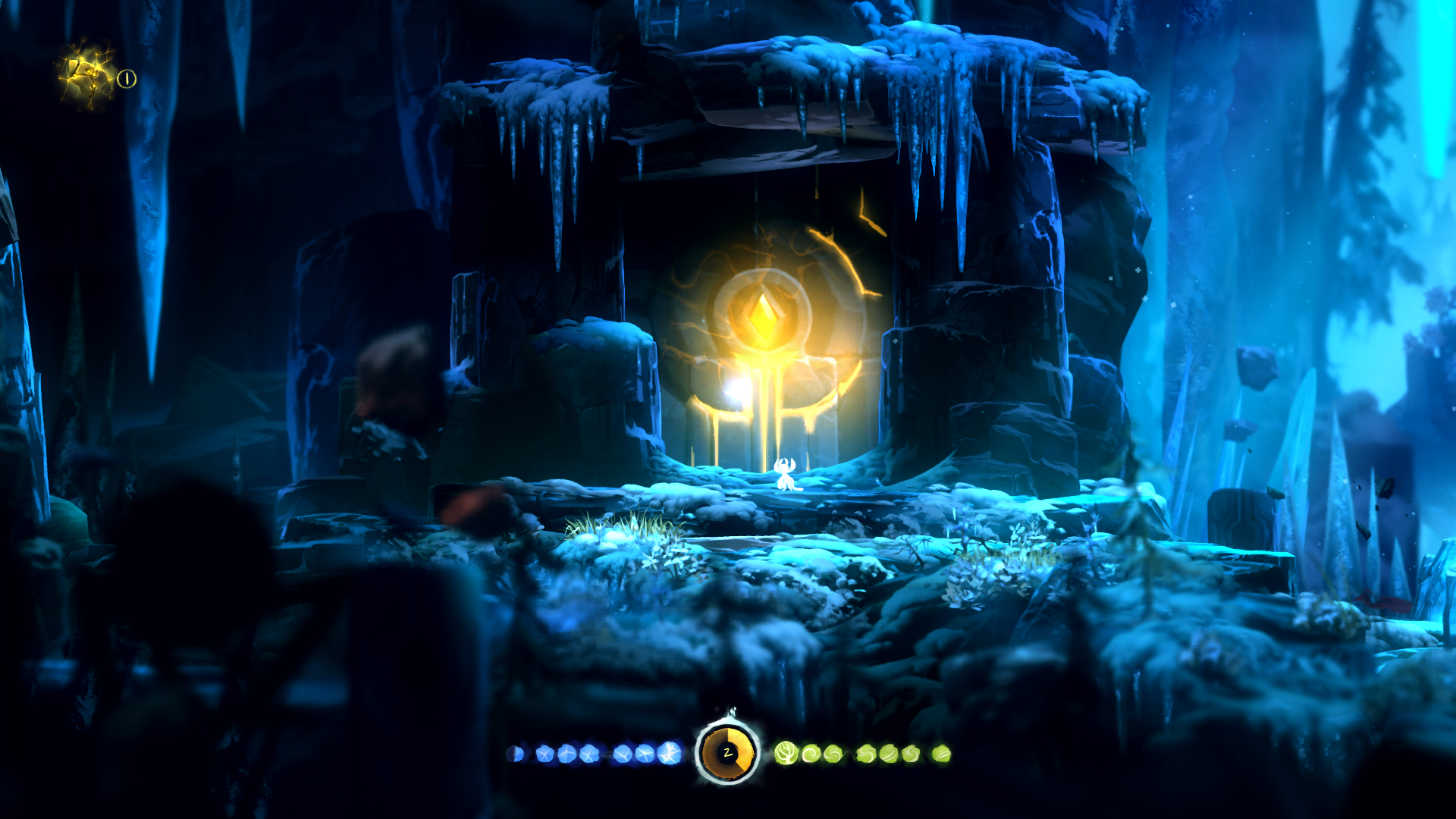
Cool and warm colors are used to great effect throughout Ori.
Challenging and gorgeous, Ori is a classic platforming genre modernized and done strikingly well. Use a controller and save often.

Tyler grew up in Silicon Valley during the '80s and '90s, playing games like Zork and Arkanoid on early PCs. He was later captivated by Myst, SimCity, Civilization, Command & Conquer, all the shooters they call "boomer shooters" now, and PS1 classic Bushido Blade (that's right: he had Bleem!). Tyler joined PC Gamer in 2011, and today he's focused on the site's news coverage. His hobbies include amateur boxing and adding to his 1,200-plus hours in Rocket League.
